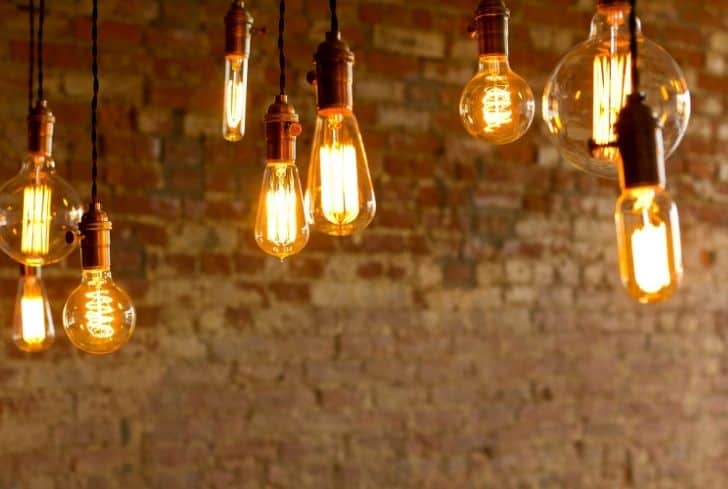The electric light bulb could be regarded as the most important and innovative invention of man since the discovery of man-made fire. The light bulb has helped to create social order after sunset, prolonged the workday into the late night, and allowed us to travel and journey safely in the dark.
The invention of the electric bulb, therefore, is a huge blessing to humanity. Hardly will you not find it in any home, office, or institution. The light bulbs are indispensable in the fight against darkness and the adverse effects of fire and gaslighting.
But what happens when these illuminating devices burn out? Do you throw them in the trash, or you get them recycled? These and many other questions are what several people have been seeking answers to. The answers are not farfetched, though.
In the following paragraphs, can light bulbs be recycled, the various means of disposing and recycling as well as reusing burnt light bulbs will be discussed.
So, fasten your seat belt and join us on the long ride to knowledge.
Can You Recycle Light Bulbs?
When you consider the various uses of the light bulbs, you can’t but get concerned about their products and after effect. They are more like a second citizen in the country. They are everywhere you go.
As much as they help us in many ways, we still need to be concerned about their environmental impact. And for a start, we ask, can you recycle light bulbs?
We were as curious as you are now. But relax, we have done the job for you. The answers are below.
Light bulbs can be recycled and reused. There are several approaches and methods to achieve this. To effectively recycle light bulbs, it is important to know the category the light bulb belongs to. There are various categories of light bulbs. The various categories include the compact fluorescent light bulb (also known as CFLs) the incandescent light bulbs. Another category of light bulb is the LED light bulbs.
Recycling Fluorescent light bulbs
Compact fluorescent light bulbs are the best choice for eco-friendly users. This is because they possess more energy than typical light bulbs. However, many people do not like these types of bulbs because they find the colors of the light dull and unflattering.
Nonetheless, proper disposal and recycling is the best method to protect yourself and the environment against the health hazards caused by these light bulbs.
The steps listed below will help you in the process of recycling your compact fluorescent light bulbs.
- The light bulbs should be pre-broken
- They should be washed to remove contaminants.
- A distiller should be used in extracting the elemental mercury.
- The metals, glass, and plastics should be broken down into smaller pieces.
- These materials should be separated and sent to the recycling plants to be turned into something new and for further recycling.
In a system where the steps mentioned above cannot work, alternative ways of recycling these bulbs are listed below.
- Gather the burnt light bulbs in a polythene bag or any other container
- Contact a regional recycling plant to collect them.
Once collected, it is the duty of the regional recycling plant to recycle them. The process of recycling the light bulbs in the recycling plant include:
- Sorting and crushing of the light bulbs for reprocessing
- Removal and reclaiming of mercury to be used to make new light bulbs or used in imaging equipment used in facilities.
- Separation of metals which are melted down and used in the manufacturing process of new bulbs
- Crushing of the glass which is reused in sandblasting gadgets or other materials
Recycling incandescent light bulbs
Incandescent light bulbs are not as efficient as other light bulbs. While a higher percentage of their energy is lost as heat, a very minimal percent is converted into light. These bulbs typically have a very short lifetime than other types of bulbs.
There are no special procedures for recycling incandescent light bulbs. Hence, all you need to do is to put them in the trash. It is recommended that you wrap the glass in something, perhaps a polythene bag, to prevent the broken glass from injuring sanitation workers.
You can as well search your locality for any place that accepts incandescent light bulbs for recycling. However, this can sometimes be very demanding since these bulb materials are difficult to recycle. There is also a relatively low number of plants that engage in recycling them.
Avoid placing the incandescent bulb in your glass recycling bin. This is because the bulb has a relatively high melting temperature compared with other glass or bottles. A single incandescent bulb can ruin a whole collection of recyclable glasses.
Do LED Bulbs Need to be Recycled?
The Light Emitting Diode bulbs, commonly referred to as LED, are the most preferred bulbs today. The bulbs last longer and are more energy-efficient than compact fluorescent light bulbs and incandescent light bulbs. They also have a longer lifespan than other light bulbs. This reduces the rate at which they are being disposed of.
However, due to the increasing demand for LED light bulbs, it is very important to look into the processes of recycling them. All LED bulbs have a crossed bin as a logo. This shows that they are not to be thrown into trash cans but have to be recycled.
Like the CFLs, LEDs are not safe because they also contain elements that are harmful to our health and environment. Some of these hazardous elements include arsenic and lead.
Precautions should be taken to ensure that these harmful substances do not enter into the waste stream.
Generally, LED bulbs are made of electronic components that are invaluable to be recycled. LED bulbs are made of materials such as transformers or semiconductors and diodes that can be recycled. Apart from these components, they are made of some metals, glass, and other different materials.
Some metals contained in LED bulbs are very useful for recycling. These metals are gallium, indium, and some rare earth elements that can be found in the earth’s crust. LED bulbs are not often recycled. However, their components can be recovered and recycled and reused in new products.
It is also wise that you search for places that are interested in the recycling of these light bulbs in your area. These will ensure that these components are not wasted. They can serve other useful purposes both in the home and in society.
Can You Throw Light Bulbs in The Garbage?
For many of us, tossing things in the garbage is our second personality. Once we have discovered that something is no longer of relevant use, we simply throw it away. But, can you do the same for light bulbs?
The answer would appear to be the same, but not entirely. You can throw light bulbs in the garbage. However, you have to be careful of the kind you throw in the garbage. Some light bulbs contain toxic chemicals that can harm the environment.
So, it is better you confirm what kind of light bulbs you have before making the decision to throw them away.
3 Smart Ways To Dispose of Light Bulbs
There is always some dark moments when the light goes off. This is the time we mostly make our next decisions. The same thing applies to light bulbs. When the light goes off, you have to make a decision about what to do with them. Often, the decision we arrive at is to dispose of them.
Since this is the case, how do you dispose of your light bulbs? Below, we have given a brief insight into how to dispose of your light bulbs the proper way.
1. Repurpose Them
You can dispose of useless LED bulbs by reconstructing them into a creative, fun project. All you need to do is to find your artistic skills and make something useful and meaningful out of these light bulbs. You might be surprised at what you are able to make out of these items.
You can make a lot of attractive and appealing objects such as oil lamps, snow globes, holiday ornaments, and flower vases. You can as well make hanging wall decorations to beautify your home and office.
2. Trash Them
Let’s face it, not all light bulbs are recyclable. And sometimes you are just too tired to prepare them for recycling. While it helps to recycle them, you can still trash them and not feel bad.
With this, you can simply put your light bulbs in the trash can. But then, if you are going with this option, there are things you may have to do. And one of them is packing the light bulbs. You can get a paper bag for this purpose.
All you have to do is put the old light bulbs in the paper bag and seal it. Once you have sealed it, you can then place it in the recycling bin. The reason for this is to ensure that even if it breaks, as it is most likely, it won’t fall off to the environment when it can cause injury to people.
3. Recycle Them
Of course, this has always been one of the biggest and surest ways to dispose of your old things. For light bulbs, you can also adopt this method. Above, we have pointed out how you can recycle the light bulb. All you have to do is follow the instructions that you have been given. And, you are cool that way.
Always remember that recycling is a way of keeping the environment clean and saving the limited resources available. So, for the sake of disposing of your light bulb, we would endorse recycling.
Nonetheless, in the case where your light bulbs are not the type that can be recycled, then you can consider other available options like repurposing it and trashing it.
In Conclusion
Without the invention of the light bulb, there would be no life in the night. Homes would be gloomy, the streets would be dark, and the whole community will be thrown into intense silence and darkness. The modern-day light bulb not only changed work and home life, but it also hastens the development of the economy and urban integration.
Electric bulbs also gave room for shift work. They improved the efficiency of workers, thereby increasing their productivity. Light bulbs created better and more conducive working conditions and reduced pollution and heat caused by gaslighting. They also reduced fire hazards at home and offices. The advent of bright and illuminating billboards and signs is a product of light bulbs.
These reasons and many more are why you should treat them properly. Once they are out of illuminating power, you adopt any of the ways we have discussed above. Be sure to do the right thing to help us keep the environment safe.






